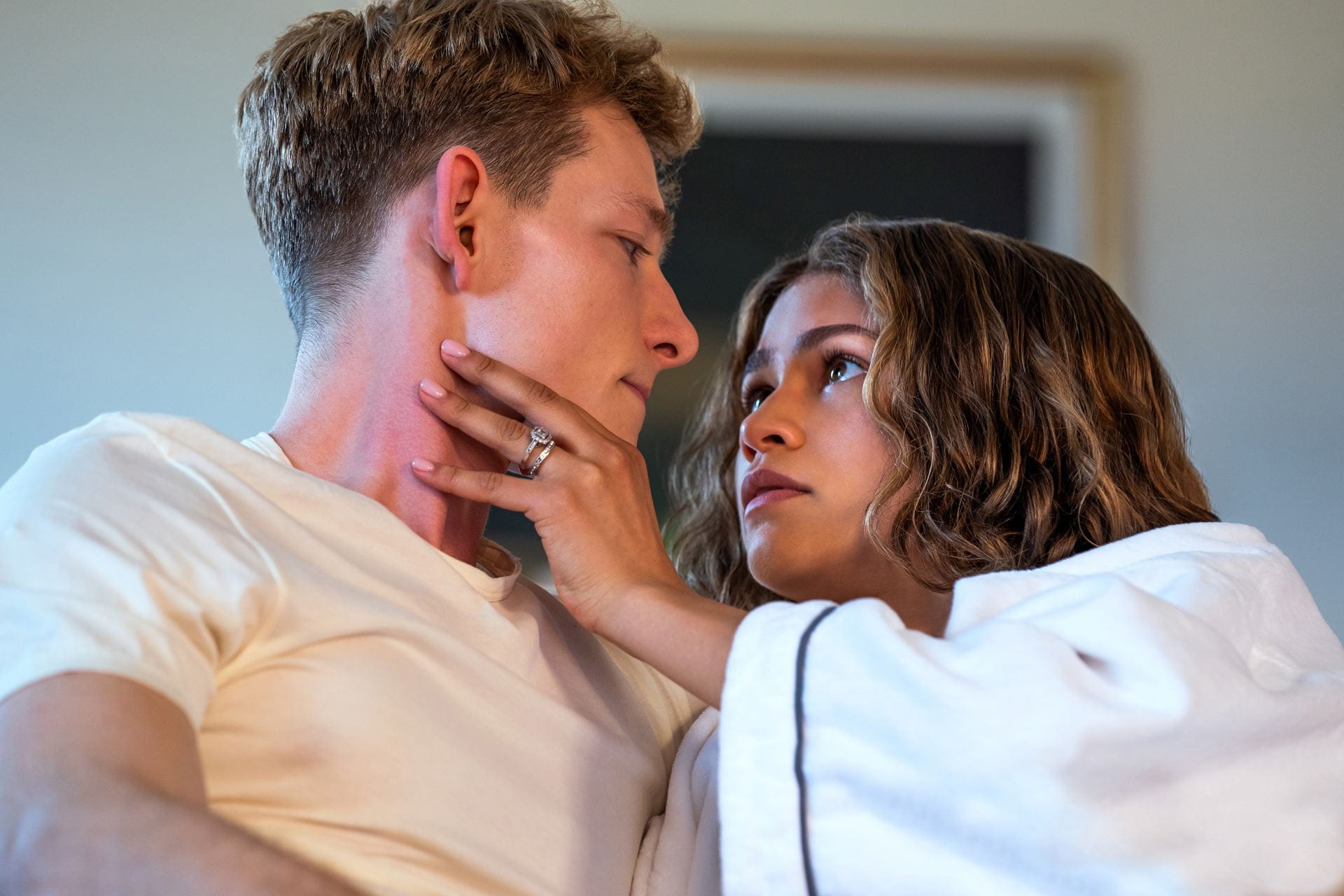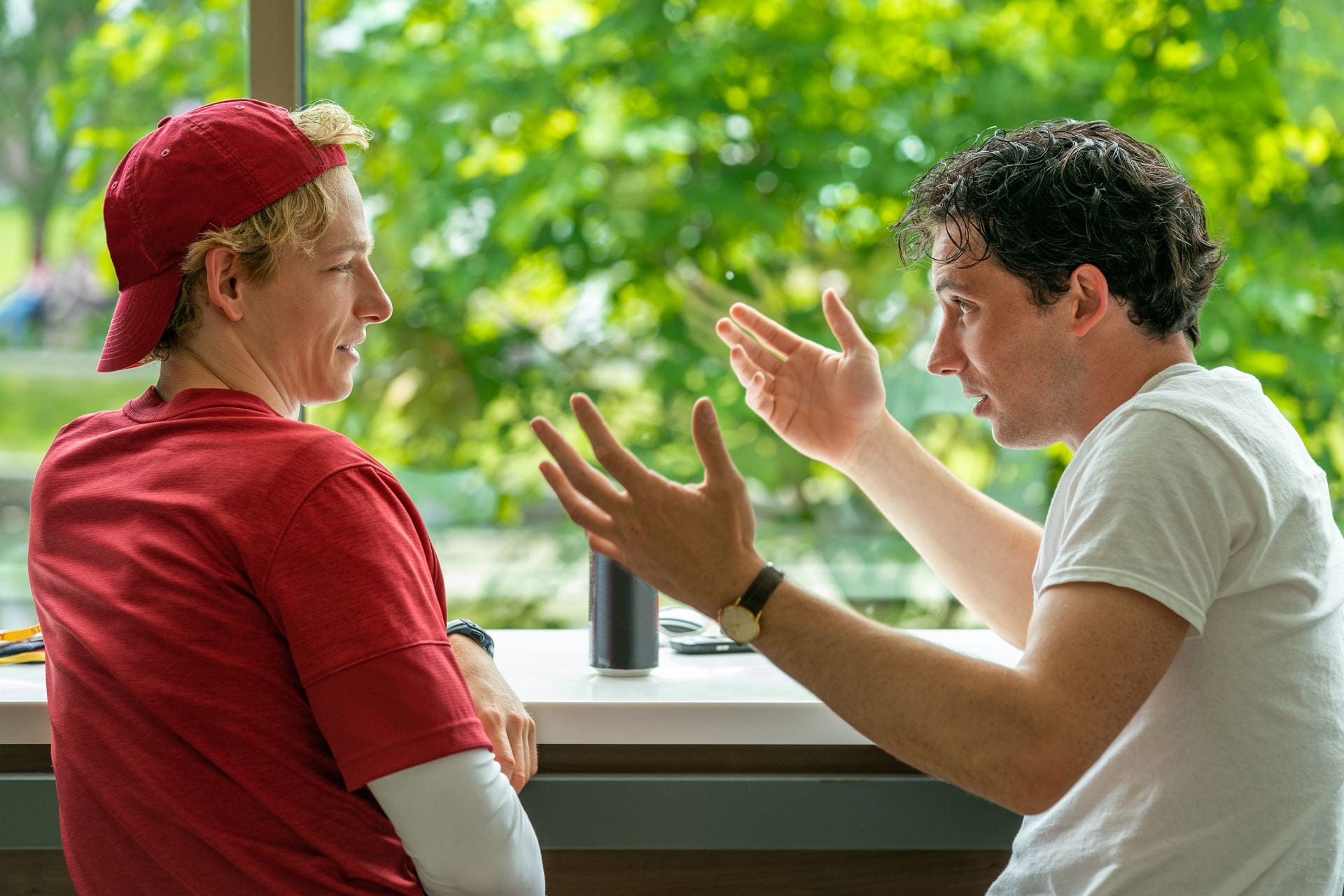
Mike Faist stars as Art and Zendaya as Tashi in director Luca Guadagnino’s “Challengers.” Credit: Niko Tavernise/Metro-Goldwyn-Mayer Pictures Inc. (via TNS)
Luca Guadagnino is nothing less than a fervent seducer, at least in the realm of filmmaking.
Typically, the director’s films are lavish escapades that follow captivating people and their extravagant sensibilities. Guadagnino’s idiosyncratic ability to make the most horrific of scenery materialize into something beautiful is entirely distinct. In fact, many of his works — like “Bones and All” (2022) and “Call Me by Your Name” (2017) — can be best described as car crashes viewers just can’t look away from.
“Challengers,” Guadagnino’s most recent directorial project, is a lurid, pulpy sports melodrama. The film follows Tashi Duncan (Zendaya), a famous-tennis-star-turned-coach who transforms her husband Art Donaldson (Mike Faist) from a mediocre player into a Grand Slam champion.
To thrust Art out of a losing streak, Tashi signs him up for a “Challenger event” — one of the lowest-level tournaments on the pro tour — where he finds himself face to face with his former best friend and Tashi’s former boyfriend, Patrick Zweig (Josh O’Connor). The film begins and ends at the New Rochelle Challenger, while its passionate backstory essentially tumbles out in all directions.

Mike Faist, left, and Josh O’Connor in “Challengers.” Credit: Niko Tavernise | Metro-Goldwyn-Mayer Pictures Inc. (via TNS)
The movie’s first half — the portion during which it works best — is filled with lingering questions and palpable chemistry between the three leads.
At this time, tennis is simultaneously at the story’s forefront and background, especially in screenwriter Justin Kuritzkes’ witty dialogue. Deciphering whether Tashi’s words are simply about the game or serve as metaphors for her sexual intentions is a laborious task.
In one particular flashback, which shows Tashi and Patrick about to have sex in her Stanford dormitory, Tashi can’t help but compare Patrick’s and Art’s tennis skills while likewise alluding to their sexual capabilities. But when Patrick wants to know if Tashi is discussing tennis or something beyond it, she quickly replies that she is “always talking about tennis.”
Just as tennis forces its spectators to look back and forth for “answers,” so does “Challengers,” as Kuritzkes and Guadagnino bombard watchers with flashbacks and flashforwards across the film’s decade-long narrative span.
Flashbacks from game days at Stanford and matches in Atlanta, Georgia intertwine with a number of stops in New Rochelle to complete the story, though not always successfully.
Guadagnino’s racket-breaking cuts between time frames become repetitive as the film goes on yet, like any good opponent, he is successful at keeping audiences off-balanced.
After all, Guadagnino has always possessed an aptitude for leaving filmgoers with more unanswered questions — is Tashi envisioning herself as the ball Art and Patrick continue to rally over for 10 years? And if tennis is a metaphor for her over-crowded relationships, then will there inevitably be a winner and a loser? A victor and a victim?
Just as the film’s tennis-like structure helps construct a disorienting atmosphere, so does its music. Interestingly, jarring techno music underscores many scenes, even those that are intimate in nature. This stark, sensually striking choice only lends itself to the movie’s sense of bizarreness.
Despite the final match’s excitement, the last act loses its emotional weight, as one ball after another is served up in slow motion. It is a little too easy to lose interest in both the tennis contests and the lingering question of who Tashi will choose — a slow ending to an otherwise captivating story.
Rating: 4/5


